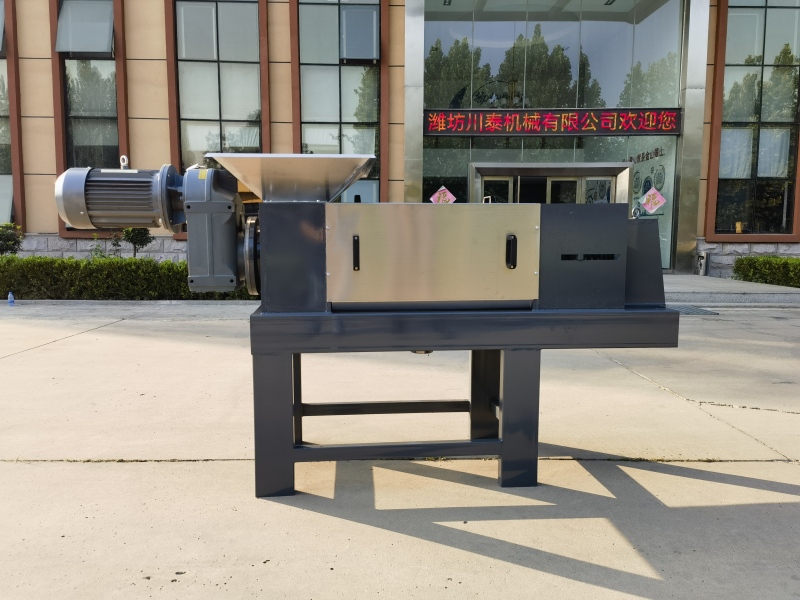
In the realm of modern food processing, the demand for efficient and sustainable solutions is paramount. One such innovation making waves in the industry is the Vegetable Dewatering Machine. This cutting-edge equipment plays a crucial role in enhancing the efficiency of vegetable processing, ensuring optimal quality and minimizing waste. This article explores the key features, benefits, and applications of the Vegetable Dewatering Machine.
Key Features:
High Efficiency:
The Vegetable Dewatering Machine is designed for high-speed and efficient water extraction from various vegetables. Its advanced technology allows for rapid dewatering, significantly reducing processing time compared to traditional methods.
Adjustable Speed and Pressure:
To accommodate different types of vegetables and processing requirements, these machines often come equipped with adjustable speed and pressure settings. This flexibility ensures that delicate vegetables are treated with care, while sturdier ones undergo thorough dewatering.
Hygienic Design:
Maintaining hygiene in food processing is non-negotiable. Vegetable Dewatering Machines are constructed with materials that meet strict sanitary standards, facilitating easy cleaning and preventing bacterial contamination.
Energy Efficiency:
Many models incorporate energy-efficient features, such as automated controls and sensors, to optimize power consumption. This not only reduces operational costs but also aligns with the industry's growing focus on sustainability.
Benefits:
Improved Product Quality:
By efficiently removing excess water, the Vegetable Dewatering Machine enhances the overall quality of processed vegetables. This is particularly crucial for products like frozen vegetables, where excess moisture can lead to ice crystals and compromise texture and taste.
Extended Shelf Life:
Lowering the water content in vegetables through dewatering helps extend their shelf life. This is especially beneficial for both producers and consumers, reducing food waste and ensuring a longer window for product utilization.
Cost Savings:
The efficiency of the dewatering process translates into cost savings for food processing units. Reduced processing time, lower energy consumption, and minimized waste contribute to improved overall operational efficiency.
Applications:
Frozen Food Industry:
Vegetable Dewatering Machines find extensive use in the frozen food industry, where moisture control is critical to prevent ice formation during storage.
Snack Food Production:
The production of dehydrated vegetable snacks requires precise moisture levels. Dewatering machines play a vital role in achieving the desired texture and taste for these products.
Canned Vegetables:
Canning vegetables demands the removal of excess water to ensure the preservation of flavor and texture. Vegetable Dewatering Machines streamline this process.
Conclusion:
In the dynamic landscape of food processing, the Vegetable Dewatering Machine stands as a technological cornerstone, offering efficiency, quality, and sustainability. As the industry continues to evolve, embracing such innovations becomes imperative for staying competitive and meeting the demands of an ever-discerning consumer base.




If your company wants to establish a business relationship with us, please briefly describe the cooperation intention and send an email to:chuantaiscrewpress@gmail.com























































































![[list:title]](/static/upload/image/20240528/1716877114510915.jpg)